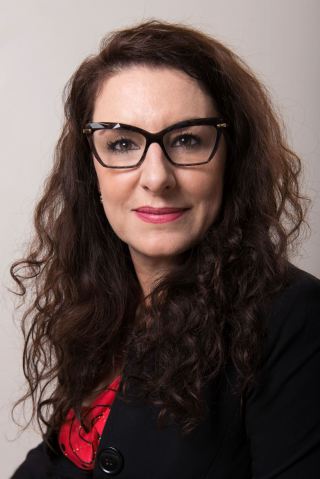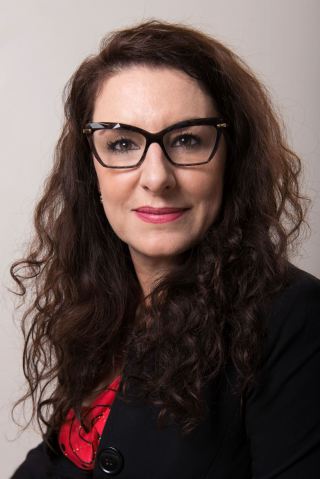World Trauma Day 2019 – how to reclaim your life
World Trauma Day, which is commemorated around the world on October 17th focuses on what happens to people when they are exposed to life-threatening or traumatic experiences.Commenting on the significance of the day, specialist self-care and trauma coach, Leigh Joy Mansel-Pleydell shares research and insights on how trauma can lead to post-traumatic stress disorder (PTSD), with advice on how people can heal themselves and reclaim their lives.PTSD side effects include flashbacks, high anxiety, personality changes, startle responses, mood swings, and disturbed sleep, and although typical treated with antidepressants and psychotherapy, there are a number of alternative healing options.
Mansel-Playdell says that PTSD and trauma does not have to signify the end. “Rather healing from trauma is often the beginning of a profound journey into self-love, acceptance and a revival of compassion, grace and joy.”Alternative remedies such as physical exercise and movement can assist with PTSD, as well as anxiety and depression.
As a proponent of alternative healing, Mansel-Pleydell proposes three healing modalities to assist with the trauma of sexual, physical, psychological and emotional abuse: Tension & Trauma, Releasing Exercises: (TRE®)TRE® is a series of exercises that assist the body in releasing deep muscular patterns of stress, tension and trauma. TRE® works on the premise that the body is put through gentle physical exercises to encourage the muscles to shake or tremble. “Whilst lying down you have to shake the trauma out of the body”. Mansel-Pleydell and TRE® practitioners believe that trauma sits in the cellular memory of the body. “This trembling helps shake the trauma lose in the body, allowing one to let it go. The trauma that sits in the body triggers memories, and the person relives the trauma. With TRE®, trembling helps release trauma from the body, and therefore memories aren't triggered as much as the person goes through deep healing,” she explains.
Physical healing: Gabby Metcalf from Sandton Scuba runs a swimming and deep-sea diving school in Norscot, Johannesburg. Gabby believes that scuba diving can help people overcome trauma. She shares an account of how her client, who was sexually abused by her grandfather managed to reclaim her life and empower herself. “By challenging herself to do something outside of her comfort zone, she managed to overcome her trauma. When I took my client on her first open water dive, my mask was filled with tears. I saw her face light up and we both knew that she had managed to let go of her fear,” says Metcalf.
Dance and Music
Another alternative form of healing from trauma is Biodanza which means the “Dance of Life.” Biodanza is a form of free-movement which uses dance and music to promote self-awareness, restore health and vitality, reconnect to purpose and realize the full capacity of human potential. “Biodanza is similar to TRE®, in that through movement, trauma is released from the cells. Music is also a vital aspect of healing,” says Mansel-Pleydell.“In my coaching practice, I have successfully married these modalities, combined with talk therapy which helps my clients' process and release latent trauma and release it from their bodies, minds and hearts. The ultimate aim of these alternative methods is to help my clients become the person, that they always believed they could become,” she concludes.
About Leigh Joy Mansel-Pleydell
Leigh is a self-care coach, accountability partner and professional speaker and trainer on self-care, who teaches her clients how to live for today, set achievable and exciting goals, and develop a daily routine that is empowering and life-affirming. You can connect with Leigh on LinkedIn https://www.linkedin.com/in/leigh-joy-mansel-pleydell-17119426/Facebook https://www.facebook.com/leighjoy74/, Instagram https://www.instagram.com/leighjoyinspires/ or www.leighjoy.co.za.
Celebrating sobriety on International Day against Drug Abuse
International Day against Drug Abuse and Illicit Trafficking, which is celebrated on June 26, directly or indirectly impacts on all of our lives. While statistics indicate that 10% of the population are addicts, the rest of us are also affected in some way, as we all have a family member, friends or colleagues that has been inflicted by addiction at some point in their lives.
Specialist addictions counsellor and professional speaker, Leigh Joy Mansel-Pleydell, herself a recovering addict, has dedicated her life to helping addicts out of the darkness of addiction and into the light of recovery.
We asked Leigh why some people become addicts and other don’t? According Leigh, research has isolated four causes that might lead to addition: Firstly, a genetic predisposition; it is said that addiction is a family disease. It is passed down from family member to family member. Some say it is in the blood.
The genome has not been mapped, but the thousands of studies undertaken at rehabilitation centres around the world show that if there is a family member with the disease of addiction, there is a likelihood that this will be passed down. Secondly, untreated and undiagnosed trauma in childhood, teenage years and adulthood can spark for addiction. Trauma might include divorce, the death of friend or family member, loss of lifestyle due to financial pressures, sexual, mental, physical, emotional and spiritual abuse.
Drugs are often used to anaesthetise the pain of trauma. Thirdly, most addicts have a dual-diagnosis or co-morbid disorder. This means that they suffer from an underlying mental illness like anxiety, depression, personality disorders, bi-polar, ADHD, to name a few. It is important to note that not all people with mental health diagnosis are addicts. Once again, addicts seek to anaesthetise the pain of untreated anxiety or depression.
Lastly, disruption in the attachment to both parents and caregivers is a likely cause for addiction, such as divorce, adoption, death of a parent or kids on the other spectrum. The enmeshment of the parent and addict also causes attachment disorders. The addict will not enjoy a secure and close bond with their parent(s). “I find that denial busting in a compassionate and often gentle, but direct way is the beginning of the healing process for my clients,” explains Leigh. “It’s really never too late to have a happy childhood”.
Leigh stresses that self-care needs to be made a priority and teaching other people how to treat you with dignity and respect is essential. Ends. About Leigh Joy Mansel-Pleydell On 30th of September 2019, Leigh celebrates her 12th year of being clean and sober. Leigh is an addictions counsellor and professional speaker who teaches her clients how to live for today, set achievable and exciting goals, and develop a daily routine that is empowering and life-affirming.
You can connect with Leigh on LinkedIn https://www.linkedin.com/in/leigh-joy-mansel-pleydell-17119426/ Facebook https://www.facebook.com/leighjoy74/, Instagram https://www.instagram.com/leighjoyinspires/ or www.leighjoy.co.za.



